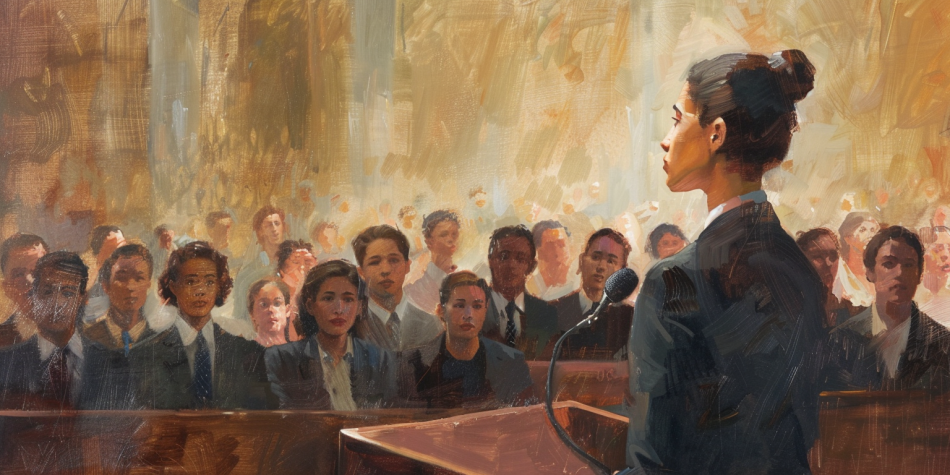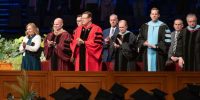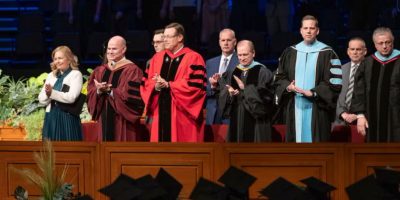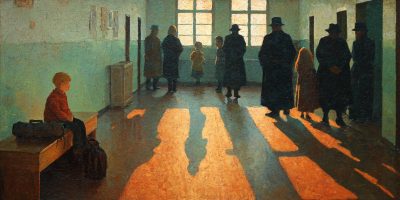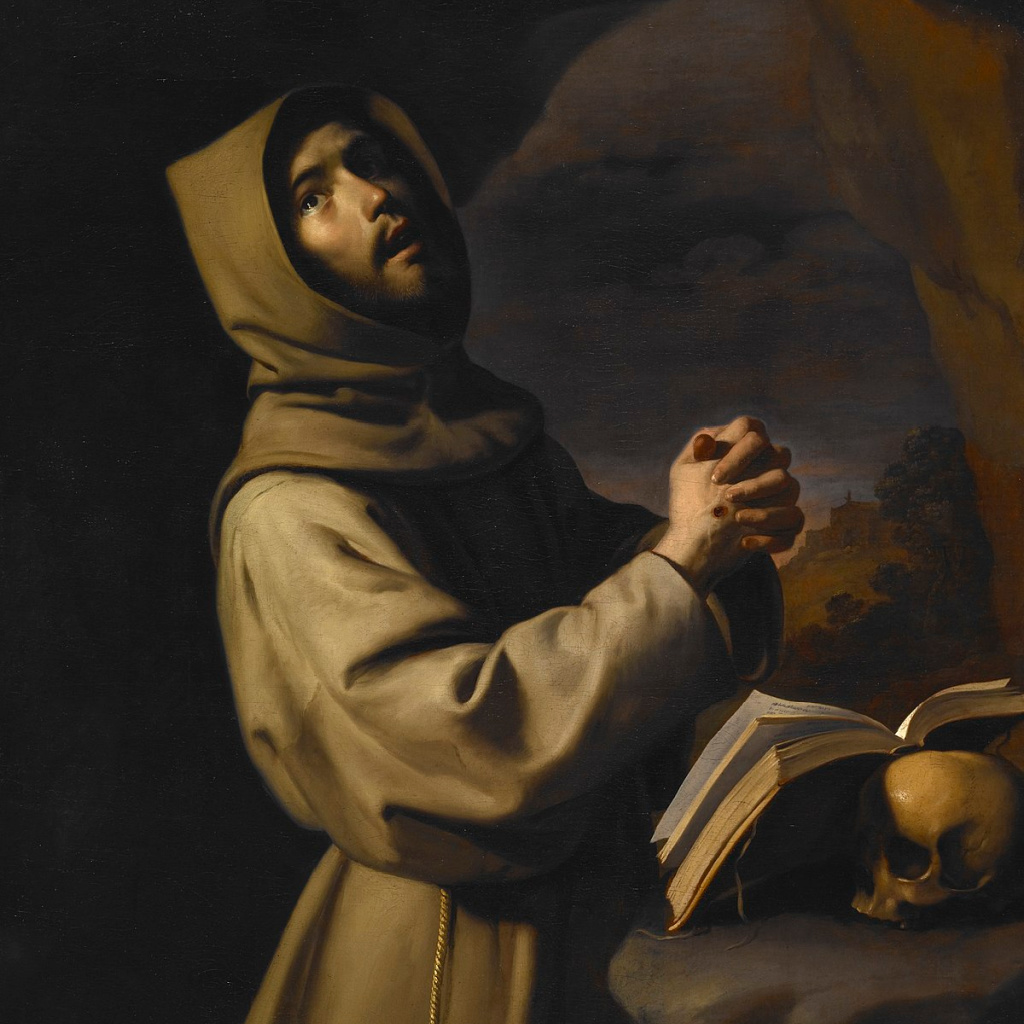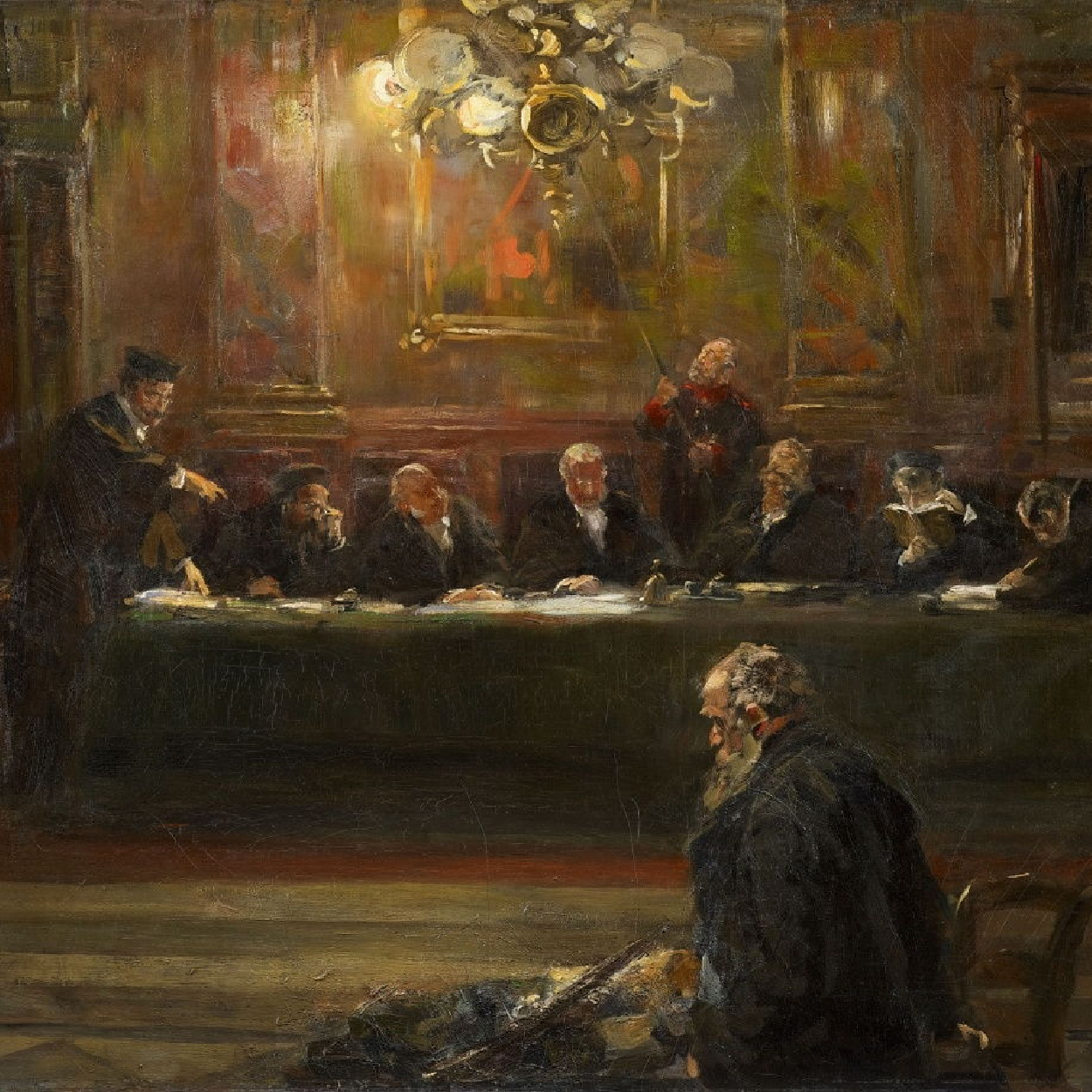Years ago as a brand new mom, I watched my husband walk to the front of the chapel to give our baby a blessing. Grandfathers and uncles joined in the circle, as well as the bishop who I had known from my childhood. My heart was full as I looked at the scene. My baby was surrounded by good men, and I felt a tangible sense of security.
The previous month had been a humbling one as I experienced the intensity of motherhood. Recovering from childbirth, while caring for a new little life, had been overwhelming. I distinctly remember asking myself – “Every woman who has given birth has gone through this?!” It is through feminine strength and bravery that each of us are here.
There are many perspectives on how best to respond to this conundrum. Some voices emphasize women’s strength while downplaying the source of vulnerability. Others attempt to eradicate the vulnerability but are only successful to the point that biology allows. Still others become ambivalent, or even antagonistic, to the life-giving power of women.
Among the various viewpoints is the one provided through the gospel of Jesus Christ. I am convinced that the gospel vision brings women and men together in the most synergistic way. Both in the doctrine of the family, as well as in the functioning of the church, women and men have the potential to flourish while working together to ensure that children are valued and protected.
Recently, there has been a great deal of social media commentary about women’s place in the church due to a quote from Sister J. Anette Dennis’ talk. She said, “There is no other religious organization in the world, that I know of, that has so broadly given power and authority to women. There are religions that ordain some women to positions such as priests and pastors, but very few relative to the number of women in their congregations receive that authority that their church gives them.”
Many have pushed back on this quote by pointing out that other churches have ordained female leaders. This is accurate, but it is not, to my understanding, what Sister Dennis was emphasizing or claiming. She was describing the power and authority that has been given broadly to women in the church. All women in the church are invited to the temple where they make covenants and participate in ordinances including the endowment which “offers power, purpose, and protection in daily life.” Potentially all women are set apart in callings at the ward, stake, and general levels of the church and receive the accompanying authority to act in those callings. Women and men have the potential to flourish while working together.

For those who do not agree with how the church is organized, a good faith effort to understand why it functions the way it does is warranted. The work of political theorist, Jean Bethke Elshtain, sheds light when applied to the church. Elshtain describes that voluntary community organizations, including churches, make up ‘civil society.’ These are institutions that are not created or controlled by the state. Such institutions “foster competence and character in individuals, build social trust, and help children become good people and good citizens.” Elshtain argues that the family is “the first and most basic” unit of civil society and that it is the “cradle of citizenship.” From the private care of the family, children move outward into the broader public community. Significantly, Elshtain points out that, “Civil society is a realm that is neither individualist nor collectivist. It partakes of both the ‘I’ and the ‘we.’”
She explains:
Families teach the first lessons of relationships among persons, some of which are essential not only to private life but to public life as well. Within the family, one learns to act upon others and to be acted upon. It is in the family that we learn to identify ourselves with others or fail to learn to love. It is in the family that we learn to give and take with others–or fail to learn to be reciprocal. It is in the family that we learn to trust others as we depend on them or learn to distrust them. We learn to form expectations of the others and to hold them accountable. We also learn to hold ourselves accountable. These lessons of reciprocity, trust, discipline and self-restraint are important to the forming of relationships in public life.
This family is not an isolated unit but very much a social institution, nested in a wider context, that either helps to sustain parental commitment and accomplishment or puts negative pressure on fathers and mothers. That pressure obviously takes many forms…(but) being a parent isn’t just another “lifestyle choice.” It is an ethical vocation. Communities, including churches, should lighten the burden and smooth the path for parents so that the complex joys of family life might rise to the surface and the undeniable burdens of family responsibility might be more openheartedly borne.”
Elshtain’s last sentence is particularly valuable when looking at the church. In the opening section of the General Handbook, it states “God’s work of salvation and exaltation is centered in the home and supported by the Church.” The importance of the family is similarly emphasized in President Nelson’s repeated phrase – “In God’s eternal plan, salvation is an individual matter; exaltation is a family matter” (which was again quoted by President Oaks in the October 2023 General Conference). At the root of the doctrine of Christ is exaltation through families. Whether one agrees with this doctrine or not, it needs to at least be acknowledged when trying to understand the organization of the church. When others may ask “What is best for women?” OR “What is best for men?” – in the church, these questions are asked concurrently within the broader question of “What is best for men and women together, so that families will flourish, and children will be nurtured – and, ultimately exalted together?” Has women’s authority been desacralized in our current age?
She observes:
“Secular male dominance is most visible and extreme in societies in which complementarity of powers has given way to an enhancement and expansion of institutionalized male authority accompanied by a simultaneous diminution in women’s domestic, sacral and informal authority….In societies, past and present, in which the home is the hub of human life, an arena of economic production as well as human procreation, a school, a hospice, a symbolically and actually potent place, women are often the repositories of several understandings of power associated with that sphere. Such female power is complementary to the more institutionalized, juridical authority of men.”
Elshtain’s words are thought provoking. Has women’s authority been desacralized in our current age? How has this affected our homes and our society? Specifically, is this playing a part in the online conversation surrounding Sister Dennis’ talk? Has the diminution of women’s sacral authority negatively affected perceptions of women-led organizations–Primary, Young Women, and Relief Society-and caused less appreciation for the foundational work they do in bridging the private and public spheres in the upcoming generations? Prophets and apostles have worked against this desacralization by repeatedly testifying of the sacred nature of womanhood. Some individuals have interpreted these teachings as putting women on a pedestal, but rather, it is prophets reminding the world of primary truths. President Russell M. Nelson has said that women have the “spiritual power to change the world.” These are not patronizing words, but rather prophetic ones and the responsibility is on each of us to understand what it means to ‘change the world’ when the charge is given by a prophet of God.
As I look back on that Sunday many years ago when my first baby was blessed, I am filled with gratitude for the good husband who has been at my side. In our private life at home, we have worked together as a team. As one bathed a sick little child, the other stripped the bed and put on fresh sheets. Both the mundane tasks of parenting, as well as the more daunting ones, were supported by the public institution of the church. We were mentored and supported by brothers and sisters in our Elders Quorum and Relief Society. Our children were taught in the Primary and Youth programs. And, significantly, as represented by the group of men in the circle that day long ago, if I had ever been left alone in my mothering—with its inherent vulnerability—I wouldn’t have been without paternal help.

